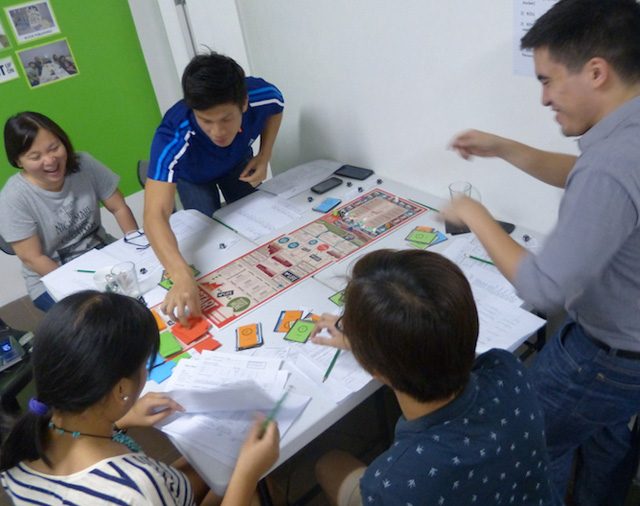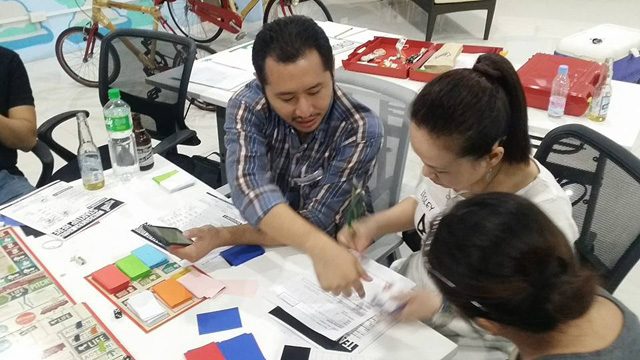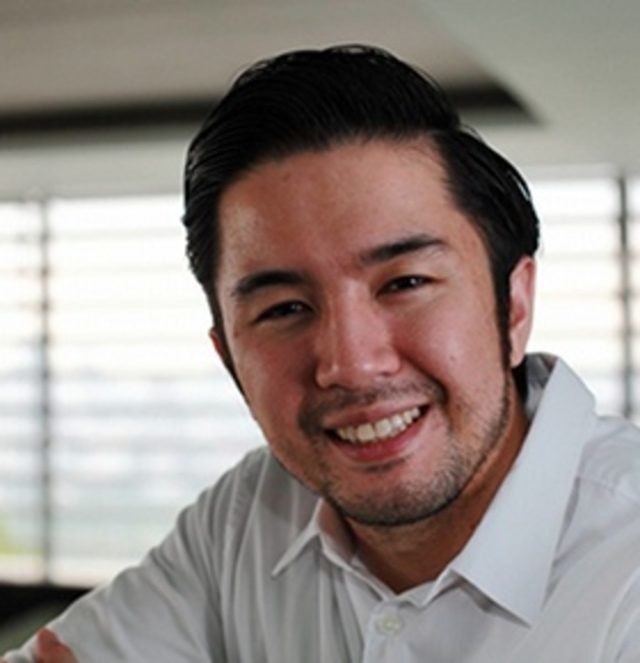SUMMARY
This is AI generated summarization, which may have errors. For context, always refer to the full article.
![[Executive Edge] Succeed, fail as entrepreneur via a board game](https://www.rappler.com/tachyon/r3-assets/6C8F57F4335E4727B16A9882428EA48E/img/F71EF3F81CCC4732B5EF613CF28B5508/Executive-Edge-Upstart-20150825-8.jpg)
Can Filipinos learn entrepreneurship through a board game?
Richard Dacalos, the founder of UPSTART, thinks so.
Dacalos and his team began developing the role-playing board game more than a year-and-a-half ago, using bond paper and LEGO pieces for the early incarnation. While they took inspiration from Robert Kiyosaki’s Cashflow 101, which teaches players how to manage finance and create wealth, they wanted to take the genre in a new direction.
“But what I felt missing was the real life experience and struggles of setting up a business,” Dacalos said. “So together with my team, I set out to create a game that could capture the experience of success and failure without the risk.”
Dacalos knew that this would be no easy task going in. In fact, he believed the genre had long been dormant because of how time intensive it was to design any game, much less one that involved business, economics, or entrepreneurship.
“Just think of the hundreds and thousands of hours put into the design and mechanics of some of the casual games you have on your smart phone,” he said.

Board game slash educational tool
UPSTART is played between 2 to 5 players, each of whom chooses a background, which is ideally close to their real life situation.
For example, you can choose to be a full-time entrepreneur or a full-time employee who pursues business on the side. The advantage of the employees is that they have a steady income stream, but they have to make do with little time to work on their business.
The game has been tweaked over the past year-and-a-half, as early versions of the game were pegged as either too realistic or too difficult. Dacalos said that players would shut down their business because they did not manage their team or their revenue streams properly, so an “incubation phase” was added to make it easier for people to ease their way into learning the game.
The core mechanics of UPSTART as it is today are deceptively simple.
“You spend turns working with chance (rolling the dice and pulling out various cards like breakdowns, opportunities, and life) and putting fate into your own hands by taking actions (by spending the currency of the game – time and money) for your life and for your business,” he said.
Dacalos said that a player wins UPSTART when he has capital to scale up his business, a huge user base or followers, or a mass of personal wealth. Despite these win conditions, the game is, at its heart, an educational tool.
The UPSTART team wants players to walk away with personalized insights into how they would act as entrepreneurs and business owners, all without the risk of investing real capital and time. For instance, a player might realize that he tries to do everything on his own, when his business would have been better served if he had chosen to build a strong team.


Positive start
Early response to UPSTART has been largely positive.
Two early testers even offered to buy an UPSTART board game as soon as they played it, but Dacalos had to decline because it was only one of 5 that they had at the time.
“It was one of those moments that had me realize we weren’t just solving a problem in the Philippines but one that matters to the rest of the world,” he said.
Exporting UPSTART internationally will be a challenge.
The team has to find the right suppliers for manufacturing, while keeping costs low and quality high. “As of now, we’re still getting from multiple suppliers and we will be making our own makeshift assembly line,” Dacalos said.
The team is currently crowdfunding on the Spark Project, but not out of operational need. According to Dacalos, the UPSTART team could have taken the game straight to wider release, but they wanted to use the campaign to identify who their supporters are.
This strategy is in keeping with the long-term business model of UPSTART. While they want to begin by selling UPSTART as a product, Dacalos and the team really want to build a global brand.
“Our second phase is to really develop UPSTART coaches who can run licensed and branded UPSTART events and workshops,” he said. “This is all in line with our vision of nurturing a global startup ecosystem starting with the Philippines.”
Dacalos believes that the time is now for UPSTART, especially as many people who have played the game have encouraged others to try it out as well.
“The time is right. We’ve seen at our game nights that there isn’t only a want but a need for this kind of game,” Dacalos said. – Rappler.com
 Rappler Business columnist Ezra Ferraz brings you Philippine business leaders, their insights, and their secrets via Executive Edge. Connect with him on Twitter: @EzraFerraz
Rappler Business columnist Ezra Ferraz brings you Philippine business leaders, their insights, and their secrets via Executive Edge. Connect with him on Twitter: @EzraFerraz
Add a comment
How does this make you feel?
There are no comments yet. Add your comment to start the conversation.